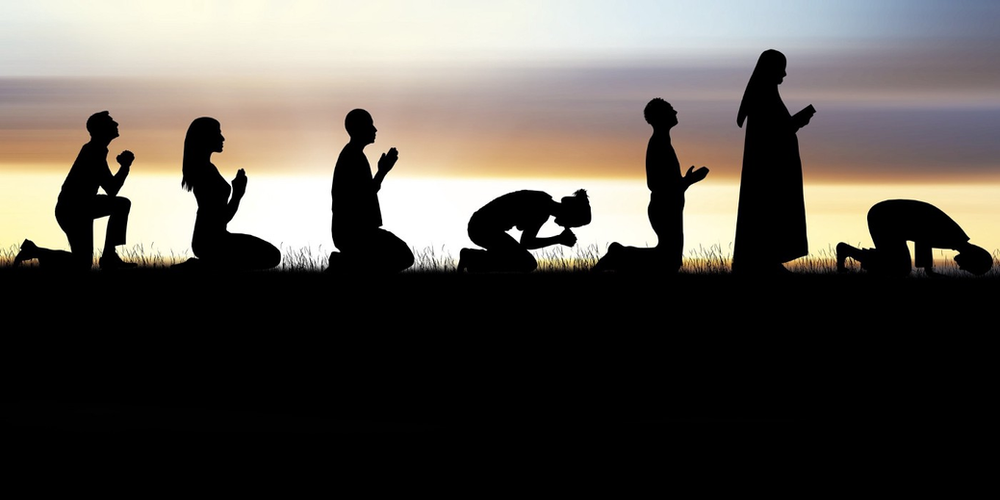
Every religion on earth claims to be the true one. And each believes that only they understand God’s will better. And genuinely, the true adepts adhere and profess their faith in truth and good faith. This is important to always bear in mind. And to respect this basic fact, it’s better not to drag other people’s religious symbols and beliefs to the ground. I have seen people trying to explain away other people’s faith like they are stupid for believing in them. I’m not talking about those beliefs that ruin other people’s life.
For example, if people say that a masquerade is their ancestor, why does one feel obliged to tell the whole world that they are making a mistake in thinking so? How does such faith prevent one from believing in one’s idea of Three Persons in One God, for example?
Furthermore, when people agree that their chief priest is chosen by their oracle, who made you the judge of the authenticity of their communal credence? Why do you think you have the mandate to save anyone who believes they need to pray before the statue of a Saint or a divinity?
Certain belief systems might be less liberating. Their adepts might need to be more outstanding in uplifting some members. And in that case, the best step might not be to destroy their faith but to bring the persons under such circumstances to light. And one can do that without making a mockery of their faith.
 Besides, we often must remember that while we think our languages make sense, others might see them as making zero sense. You might also feel that your faith is the only true one, but not those who do not share the grace of your faith. They could be wondering why they should believe the tenets of your faith.
Besides, we often must remember that while we think our languages make sense, others might see them as making zero sense. You might also feel that your faith is the only true one, but not those who do not share the grace of your faith. They could be wondering why they should believe the tenets of your faith.
As a Christian, you can’t imagine why anyone should doubt that Christ resurrected from death, for example. But have you ever imagined that though it could be evident to you, it’s still a crazy idea for someone who has not had the grace to share in such an incomprehensible reality? On the other hand, as a Muslim, you might be convinced undoubtedly that the Koran was dictated to Prophet Muhammad. But you don’t understand that those ideas might sound too pretentious for a Christian who believes that after Christ, there is no other Major revelation possible.
You might also think that those who practice traditional religion are simply out of their minds to believe that the ancestors share in the libation they pour on the ground. So, how do you think it sounds to such people when they hear that a priest can take unleavened bread and, after a few words, turn it into the body of Christ? How do you explain to anyone who does not share your faith that one can eat the Body of God? It appears evident in the “eyes of your faith,” but what a silly thought it can be for someone who does not have such grace.
Furthermore, I have heard people discuss the universal objectivity of their faith. Every sophist can defend that, too, I concur. Yet, faith is such a tricky thing that speaking about it in terms of universal objectivity seems out of context. We build our different faith defensive arguments from our respective religious experiences and holy books. How objective is a biblical or Quranic view for someone who does not believe God revealed himself in those Holy books?
One can ask whether their objectivity depends on the beliefs of those who do not ascribe to such faith. Of course, we can argue that it does not. Yet, who determines which version of faith is the right one? Why should one of them be universally credible and not the others?

Those are the dilemma surrounding the pretense of universal objectivity of any giving faith.
And before one accuses religion of not being as objective as science, one has to check out some of these scientific theories — Fleischmann–Pons’s Nuclear Fusion, Phrenology, The Blank Slate theory, Einstein’s Static (or Stationary) Universe, Phlogiston Theory, etc. These were scientific theories thought to be objective but were later falsified. Therefore, universal objectivity is more of a wish in science and religion.
Hence, as we discuss other people’s faith, it’s always important to understand that ours make sense to us because we were given the grace to share in them. Furthermore, we should never forget that faith is a supernatural gift, not a recompense for our human effort. Yet, building our faith demands an engagement with the initial experience that opened the door to the mystical experience that ushered us into the divine presence embodied in our respective religious families.






